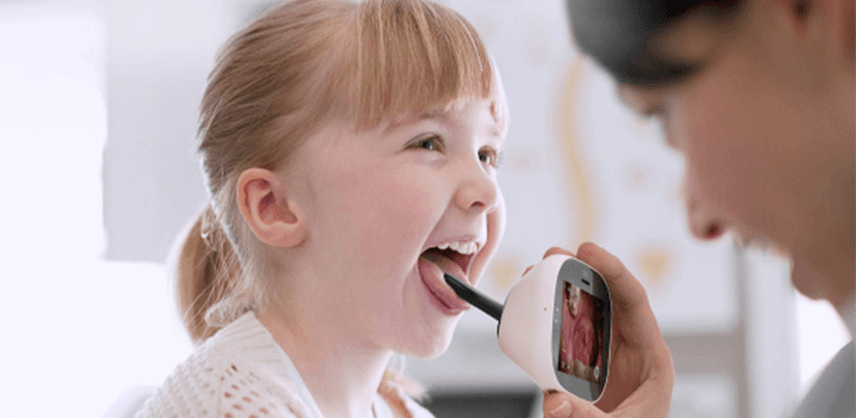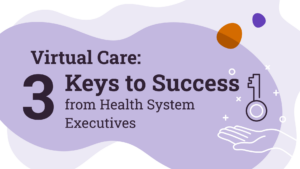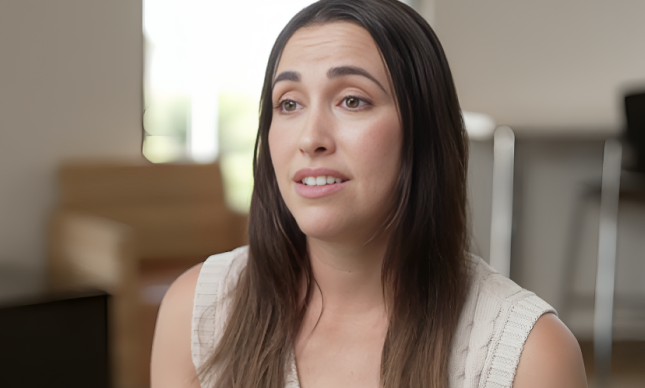How is AI Changing the Future of Telehealth?

The use of AI technology to diagnose and detect disease has been on the rise within the healthcare sector in recent years, and proving to be just as – if not more – effective than the human eye. A 2019 study found that AI correctly diagnoses disease in 87% of cases, higher than the rate of diagnosis by healthcare professionals (86%). This study also found that the specificity for deep learning algorithms was 93%, compared with humans’ at 91%. Another recent study published in the Journal of the National Cancer Institute found that AI technology achieved a breast cancer detection accuracy comparable to an average breast radiologist.
As the pandemic accelerated the use of remote care, clinicians now need to consider the role of AI beyond in-person care, expanding into the realm of virtual care. To incorporate telemedicine into long-term care strategies, providers must think beyond digital care to digital diagnosis. In order to provide the most accurate, digital diagnosis – without guesswork – clinicians need better knowledge support, access to more data, improved guidance and better workflow – all of which can be supported by the use of AI technology in virtual care.
Ophir Lotan, Vice President, TytoCare Product and Implementation, shared his view on the expanding role of AI in telehealth, and how TytoCare’s new, diagnostic AI tool (currently under FDA review) will improve diagnostic support for clinicians and in turn, the future of remote care for patients.
What is the value of AI for telehealth?
The value is endless. From the patients’ side, it can help them better understand their condition, needed treatment and the urgency to see a clinician. It can also help guide patients on how to conduct remote medical exams properly, in order for the clinician to receive clinically valuable data.
From the clinicians’ view, AI can help clinicians better triage which patients to see first, aid in decision support to better diagnose medical conditions that can be easily missed, and better evaluate the patient’s current condition with supplemental medical history information. All of this helps to make the patients’ visit more effective and efficient.
How will the Tyto Care AI diagnostic tool improve Tyto Care’s existing capabilities, once approved by the FDA?
Tyto Care currently uses AI technology for patient guidance and clinician decision support, but our our first diagnostic AI solution will allow clinicians to have a precise tool to help them remotely detect conditions that otherwise could only be detected by the human eye or ear. The tool will pinpoint to the clinician the exact segment where the AI detected a condition – it’s accuracy can be better than the clinician himself.
Our first diagnostic AI will initially detect lung abnormalities that often appear during a lung exam, such as wheezing, and reflect this information for the clinician while he can also leverage patient information and other medical data.
How do you see the growth of AI affecting the telehealth industry within the next 1-5 years?
AI technology will continue to improve clinicians’ confidence in telehealth visits because of its increased accuracy, and the wider range of conditions that clinicians’ can easily detect with AI support before making a final diagnosis. AI will also continue to improve the efficiency of visits and the ability to triage patients. In addition, patients will have a better guidance tool to help them collect clinical data that is valuable for the clinician, even if the exam was conducted themselves and not the professional.
In the future, AI technology within telehealth solutions can help patients self-diagnose specific conditions, help them better understand the need to see a clinician and monitor their disease improvement or regression to understand if they need to re-asses conditions with the clinician.
Learn more about the launch of Tyto Care’s diagnostic AI tool here.
Connect with our sales team for updates on the Tyto AI launch and how the new diagnostic tool can enable your team to provide accurate, efficient telediagnosis.






